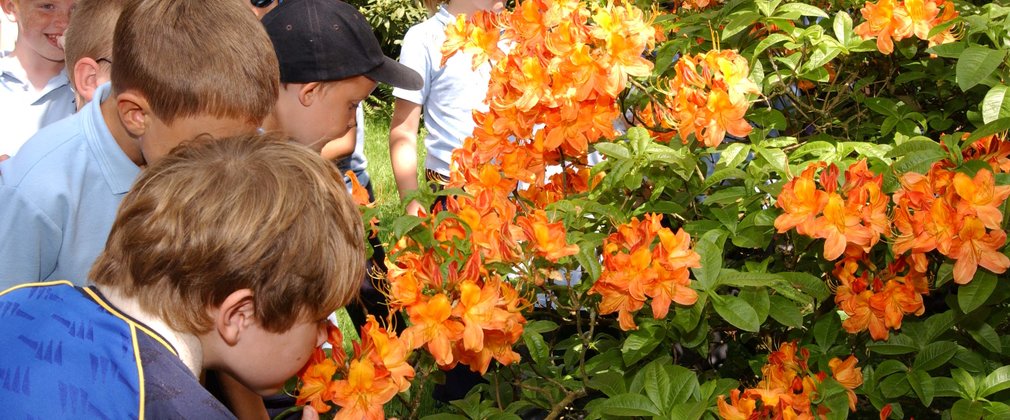Pollination programme aimed at KS2
Updated 15th January 2024
Suitable for Years 3-6, April-July
Key concepts
Pollinations, flower structure and function, pollinators, adaptation, lifecycles, fertilisation.
Learning outcomes
- name the different parts of a flower and describe the function of each.
- describe the lifecycle of a plant.
- explain the importance of colour and scent for insect pollination.
- know that some flowers are wind pollinated.
Activities
Introduction - brainstorming knowledge about parts of a flower and their function.
Flower detectives - using magnifiers to identify different flower parts and how flowers are adapted to increase the chance of pollination.
Through the eyes of a bee - discover how different pollinators view colours.
Great smell census - if you were a bee, which scent would attract you? Discover different scent strategies flowers use.
Honey bee relay - an active way to explore the process of pollination.

